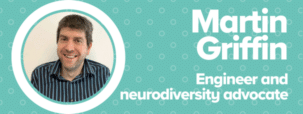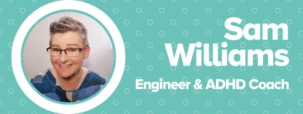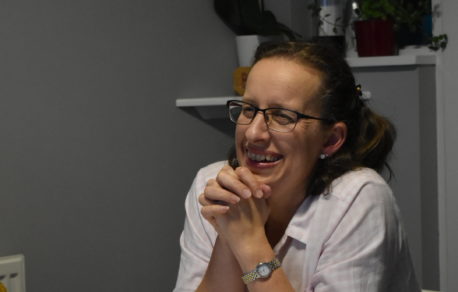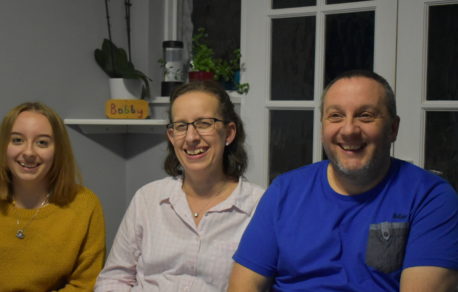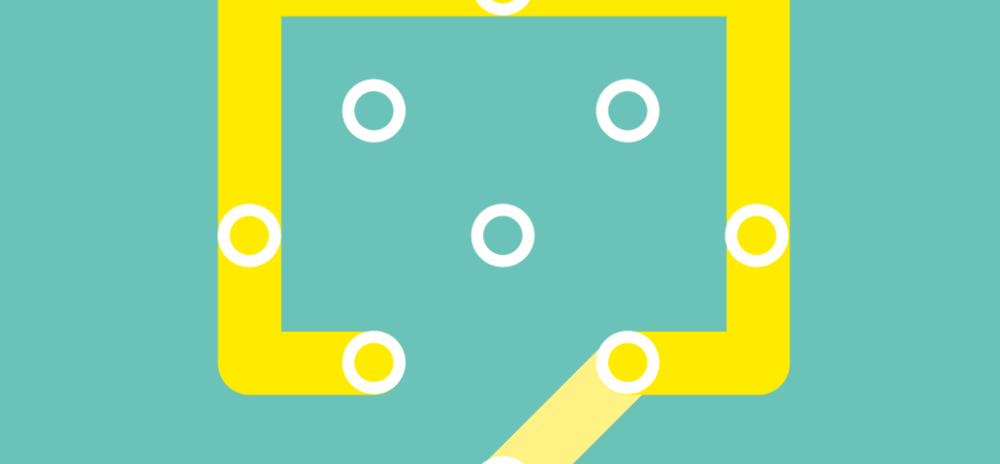
How practising mindfulness, meditation, and compassion enhances my wellbeing
Foothold community member Kevin Tibbetts tells his story of how a change in career and circumstance led him to discover the transformative power of meditation, mindfulness and compassion, and how it has helped him stay positive and cope with stress – even when he became ill with Covid-19.
My road to mindfulness and increased self-compassion
I first became interested in what some engineers call the “soft side” when I found myself leading organisational change projects.
My technical education and experience up to that point had been in ‘hard’ technologies like electronics, software & systems, and my early training had not prepared me for helping those on the receiving end of change deal with the strong emotions involved.
I was also acutely aware of the stress I was under too.
On one occasion, a manager who was under a lot of pressure broke down in front of me and required counselling support.
Another person became angry and yelled in my face.
In contrast some people were more positive, even thanking me for helping them. People react in extreme ways under stress.
These experiences prompted me to learn much more about the psychology of change at the individual and business level.
I signed up to counselling courses, read books and papers, and undertook training in Neural Linguistic Programming (NLP).
Following my redundancy in 2010 I decided to pay more attention to my own physical and mental wellbeing and enjoy my new freedom. On the mental wellbeing front, I participated in Foothold’s excellent sleep training, studied positive psychology, practised meditation & mindfulness and took part in introductory Buddhism meditation training.
My most recent training was an online course on mindful self-compassion by Dr Swati Desai – more on this to come (you can find out more at www.2meditate.com).
Who can benefit from meditation, mindfulness and self-compassion?
Anyone who regularly interacts with people, especially those in caregiving roles, coaches, managers, and team leaders too. Most of us can benefit at some time as relationships with others can be challenging.
I see meditation, mindfulness and self-compassion as useful for anyone seeking to develop themselves – you do not have to be experiencing mental health issues to benefit.
The power of self-reflection
In 2017, Dr Raj Raghunathan, Professor of Business at the McCombs School of Business at the University of Texas, delivered an excellent course on ‘A life of happiness and fulfilment’. This led to another course in 2021 entitled: ‘Seven happiness sins and habits’, where he was joined by Dr Swati Desai. I participated in both of these online courses.
During the same timeframe I was experiencing high stress levels as I had found myself in the role of carer following the loss of my father. I mentioned this issue to the course hosts, and although this was the first time I had been in contact with Dr Desai, she responded with some valuable insights.
The first insight was that my own life course, and that of the person I found myself caring for, were not the same. I had exhausted myself visualising what I would be like in the other person’s situation.
It was also pointed out that I could be more self-compassionate, and less demanding of myself to have all the answers.
Learning more about mindfulness and self-compassion
This interaction with Dr Desai encouraged me to sign up for her regular Sunday meditation class, and later to her open course on mindfulness and self-compassion.
The training was for eight weeks, two evenings per week, with participants contributing donations as they wished. The courses run regularly.
Like many wellbeing-related subjects it is not enough just to read and comprehend – it is a highly experiential area. And so the training sessions often started with a meditation to bring our focus to the course, followed by the specific learning and meditation or exercise.
We also had valuable one-to-one sessions with other delegates, all via Zoom. I found it fantastic to connect with people from Japan, Russia, the USA, India and elsewhere. You quickly appreciate the idea of ‘common humanity’.
So what have I learnt? Let’s talk about mindfulness first.
Mindfulness is all about being aware, in the moment, non-judgementally.
It is quite a subtle form of awareness characterised by curiosity, complete acceptance, and no immediate reaction, simply observing non-judgmentally.
Normally, as you go about your day, drive your car, ride your bike, walk, prepare food, talk to someone… what are you thinking at that moment?
Many of us are not even aware of our thoughts. I might be out walking, but at the same time thinking about yesterday’s argument, what to buy next, that blog which needs an edit… I am barely aware of where I am, who I am with, or the natural world around me.
This awareness is surprisingly challenging to achieve but develops with practice and with meditation. You still need to make plans and think things through, but not all the time.
If you do want to enjoy that walk (or anything else you might be doing) then pay more attention to the senses moment by moment; what you see, hear, feel, smell, and taste.
This leads me to meditation: training your mind to focus.
A meditation could last for a minute or several hours; I typically aim for twenty to thirty minutes though even a five minute break in between helps.
The meditation might be as simple as watching your breath, feeling the sensations of the body, or developing compassion. And bringing the mind back to the object of attention when it wanders.
Meditation has many uses. One of them is to actively generate your desired state of mind, or at least influence your state. It can also help with sleep, reduce stress generally, or in achieving a relaxed but alert state – useful if you’re preparing to give a presentation, or take some sort of test.
Finally, compassion.
Compassion for others and self-compassion are similar in principle, but it is often easier to be compassionate towards others than to yourself.
Self-compassion is where you give yourself a break, accept you are not perfect and in essence share supportive messages with yourself, for example, “may you be well”. You become more of a friend to yourself; less the bossy self-critic.
One useful lesson that Dr Swati Desai’s course highlights is the difference between empathic compassion and cognitive compassion.
I learnt that empathic compassion is where you ‘feel’ the feelings of the other person, ie. being in someone else’s shoes.
Whereas cognitive compassion is about understanding what the other person is going through, but stopping well before the emotional overwhelm that can develop with empathy.
Lessons from Covid-19
It seems to me that every new event comes with a lesson to be learnt.
For instance, I recently tested positive for Covid-19. Observing my own thoughts avoided giving any impetus to the unhelpful ‘what if’ considerations vying for attention, such as: what if it gets worse, how will I get to hospital etc.
I was aware of these thoughts but I was not consumed by them. Note that actions were needed too, for example drinking plenty of water to help reduce dehydration. It’s not all about being mindful.
I experienced a great lesson in compassion too. I was surprised and grateful when friends, neighbours, and relatives were generous and caring towards me, by offering food and vitamins, but also by displaying compassion.
It was very uplifting to be on the receiving end of compassion. The sense of isolation and even loneliness is broken when that happens. I took the opportunity to savour the feeling. Some good did come out of contracting this virus for me.
Where next… and drink tea.
The focus here has been mainly around my own experience of meditation and mindful self-compassion. As a result, I have become more aware of the impermanence of emotions.
It can be enough just to observe emotions; they do not all need to be acted upon. The result is greater happiness and wellbeing.
Though I am retired, I sometimes find myself coaching others. My NLP training and business knowledge helps but so does coaching from a position of compassion and mindfulness.
I do not claim any great academic wisdom in this field – my intention is simply to help a few people, whether they are engineers or not, to explore mindfulness and self-compassion for themselves and consider if they too would benefit from learning more about it.
You can sign up to be notified of any upcoming courses by Dr Swati Desai here. My interest in the course on mindful self-compassion is what prompted me to write this blog and to be an ‘ambassador’ for the site.
I also recommend courses from Coursera and Futurelearn. You can find many guided meditations on www.2meditae.com and YouTube too.
Finally, drink tea. Mindfully. Where precisely do the tastes occur, notice any sensations on your teeth, what sounds are made? Enjoy. (It does not have to be tea).
If you found this useful…
Why not check out our dedicated online Wellbeing Hub, developed in partnership with Gattaca PLC, where you can find a range of free helpful resources to help you enhance your mental health and wellbeing.
If you’re a current or former IET member and you’re having trouble coping with feelings, we can also offer you a wellbeing assessment and free enhanced membership to Anxiety UK. We also have counselling grants if you are experiencing grief, trying to process a medical diagnosis, have just lost your job, or for any other reason. Get in touch today to find out how we can help you get back on track.
The information in this blog is an expression of the personal views of Kevin Tibbetts, and this – along with all third party links contained in the article – is not a direct endorsement of Dr Swati Desai’s services by Foothold.
